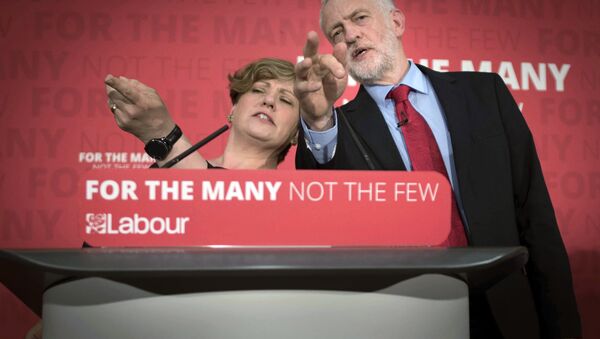The region was once known as the 'Red Wall' due to the fact that it was staunchly Labour, yet data released today shows that the people from the region are growing politically homeless as their political ideology falls somewhere between the two parties.
Political Professor, Despoina Alexiadou from the University of Strathclyde, shared her views on the problems that Labour faced in the North of England in the last election cycle, and what the future could look like in the North of England.
Sputnik: Why were the Labour party unable to connect with voters in the North East of England?
Despoina Alexiadou: It seemed that Labour focused more on policy prescriptions that appeal to, what we call socioeconomic professionals, so middle-class people who have high levels of education, they often work for the public sector, and they have more or less secure jobs, even if they don't have very high incomes.
Based on recent surveys that have been done, we find that that group, the kind of middle/upper-middle class group tends to prefer high taxes compared to those that are rich or richer. Those that are more working-class define more broadly. So even with variable incomes, starting from low incomes to higher income, people basically who rely a lot on their labour for the income so they might be self-employed or not.
So those typically prefer lower income tax than the kind of more educated middle. I agree with that view that they had a hard time identifying what these voters, the 'Red Wall', really wanted from the you
Sputnik: In the research data that was recently released, it showed that people in the ‘Red Wall’ were for a more fair tax system, but they were against the idea of taking more money from the modestly wealthy to billionaires. Is that a surprising outcome?
Despoina Alexiadou: So It is surprising from a political economy perspective, or what or what we think about models of economic tax preference, but actually is not surprising. If you have looked at other recent research about text preferences. Often in some surveys, they find that yes, voters would like to see the rich paying more but when you, when you ask much more direct question, is explicitly, about income tax, we don't find strong evidence that they want the richer to pay higher income tax.
They talk about capital tax, and that's different, right? Because most of the working class and middle class, they don't have much income from capital investment. It seems that that's where these voters are more concerned about. So you know, why do these people get such high dividends from the capital, which in some ways you can save is not as productive in that they don't really have to work? So why do they earn such high income? Why didn't they pay their fair share in taxes?
Despoina Alexiadou: We have to see, it's hard to tell. Based on the Cabinet reshuffle last week? I would say no. A lot of incoming ministers and the finance minister seems to have backgrounds that from banking. So I don't know how much they will be tuned into the needs of those voters in the north. But if actually they go ahead with a lot of their investment projects, the big infrastructure projects, then we could see a significant growth coming out of infrastructure rather than out of tax policy. I don't expect them to be particularly progressive with their tax policy based on the reshuffle.


